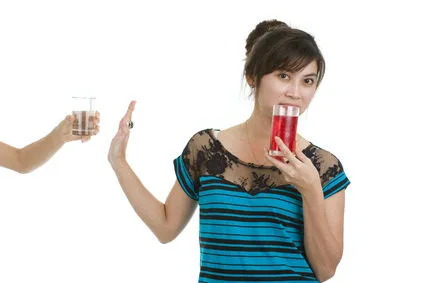
- Share on Facebook61
- Share on Pinterest
- Share on Twitter
It comes as little surprise that the average American consumes way too much sugar on a daily basis – an estimated 22 teaspoons per day! About half of that sugar intake comes from sugar-laden beverages.
What is surprising is that many Americans are unaware of just how much sugar is in their drinks, or which drinks have added sugars. A new study performed at the University of Florida questioned Americans about their knowledge of sugary beverages, and the results showed that many lacked adequate information to make truly healthy choices.
The study was led by Gail Rampersaud of the University of Florida, Gainesville’s Institute of Food and Agricultural Sciences. Rampersaud stated that the original objective of the study, which involved an online questionnaire provided to 3,361 adults living in the United States, was to determine how the information printed on drink labels is interpreted.
She wrote, “some dietary recommendations call out ‘sugary’ beverages. We wanted to see how consumers were interpreting that term and whether they had a good understanding of the types of sugars or other sweeteners in commonly consumed beverages.”
Rampersaud and her research team found that there was some confusion among study participants about the term ‘sugary.’ For example, 96 percent of the participants said that soft drinks were sugary, however, only 75 percent knew that they contained added sugar.
Approximately 60 percent identified that sports drinks and fruit drinks contain added sugar. About 50 percent knew that cranberry juice cocktail has added sugar. Additionally, 45 percent thought that diet soft drinks were sugary, 40 percent thought that ‘100 percent fruit juices’ were sugary, and less than 25 percent knew that milk contains lactose, a natural sugar.
Regarding these results, Rampersaud said, “we need more research to identify education efforts that would be successful in enhancing consumer knowledge about sugars with the overall goal of helping consumers make more healthful beverage choices.”
Beverages (and foods) with added sugars are certainly to be avoided in the interest of health. The more sugar you consume, the higher your risk of debilitating conditions such as obesity, type 2 diabetes and cardiovascular issues. High fructose corn syrup, added to many processed foods and beverages, carries just as much if not more risk, as it has a higher fructose ratio, and by its chemical composition travels straight to your liver.
 While diet sodas do not contain sugar, they do contain artificial sweeteners, such as aspartame or sucralose, which have been linked to a number of health issues, as well as tumors in lab rats. ‘100 percent fruit juice’ only contains natural sugars, however, it is still heavily processed to extend shelf life, and some brands have chemically processed ‘flavor packs’ added that are not required to be listed on labels.
While diet sodas do not contain sugar, they do contain artificial sweeteners, such as aspartame or sucralose, which have been linked to a number of health issues, as well as tumors in lab rats. ‘100 percent fruit juice’ only contains natural sugars, however, it is still heavily processed to extend shelf life, and some brands have chemically processed ‘flavor packs’ added that are not required to be listed on labels.
When it comes to sugar, your best bet is to say no to processed foods and drinks entirely, and to sweeten using truly natural alternatives such as stevia or raw honey, in moderation.
As far as fruit juice, as it can still spike your blood sugar levels even if it comes from your home juicer, it is a better option to simply snack on the entire fruit, and enjoy all of its health benefits without the ensuing sugar crash.
-The Alternative Daily
Sources:
http://www.foxnews.com/health/2013/12/11/consumers-often-confused-about-types-sugar-in-drinks
http://www.reuters.com/article/2013/12/11/us-consumers-beverages-idUSBRE9BA0YI20131211
http://www.nrjournal.com/article/S0271-5317(13)00271-6/abstract
http://www.rodalenews.com/recommended-sugar-intake
http://www.rodalenews.com/drinks-and-weight-loss
http://ajcn.nutrition.org/content/85/3/651.long
http://www.mercola.com/Downloads/bonus/danger-of-corn-syrup/report.aspx
https://www.thealternativedaily.com/levels-of-sugar-considered-safe-by-usda-kill-mice
https://www.thealternativedaily.com/commercial-100-orange-juice-fraud-toxic-perfume-flavor-packs-added
- Share on Facebook61
- Share on Pinterest
- Share on Twitter

